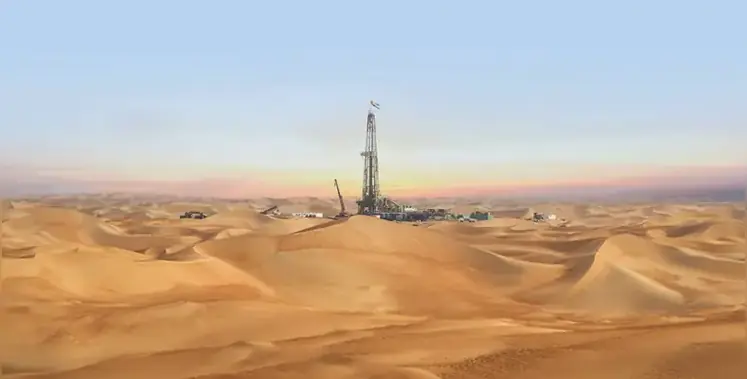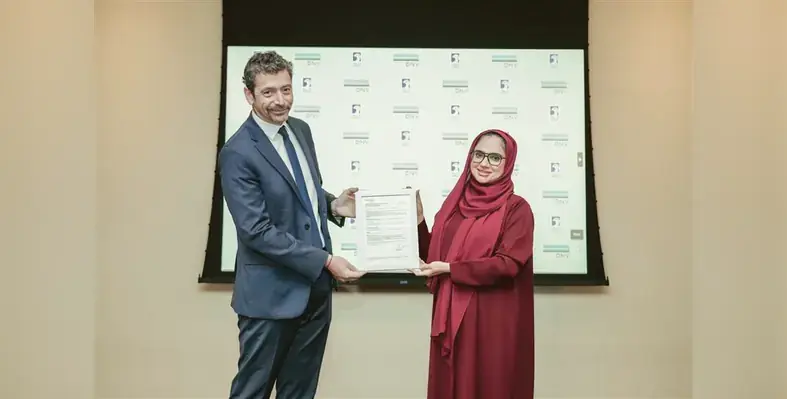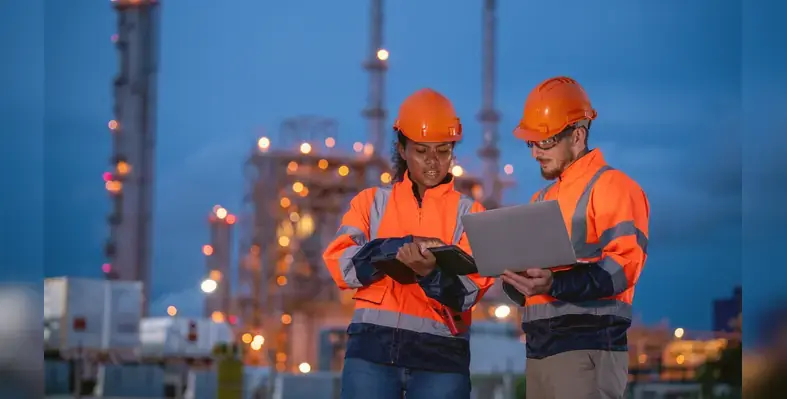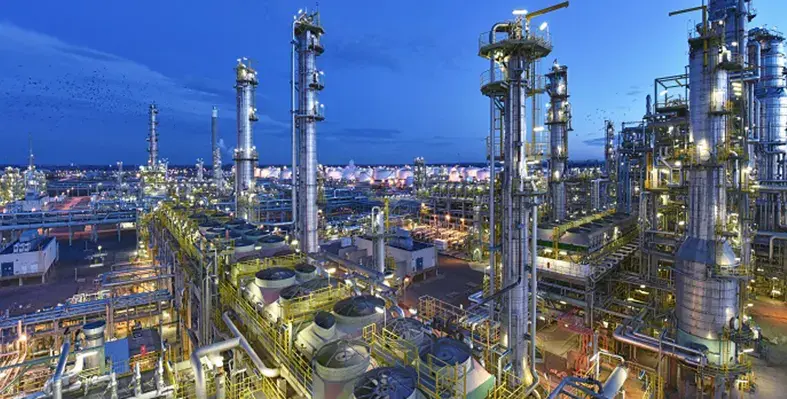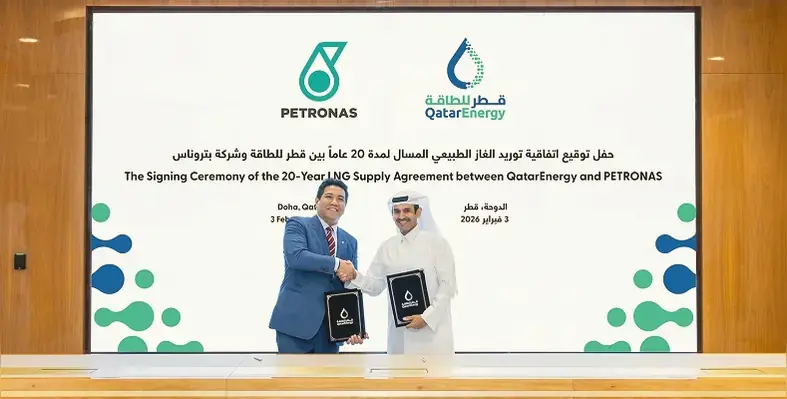ADNOC companies have announced strong 2025 results, reflecting growth across the value chain from upstream development to logistics and distribution, as well as international expansion, capital discipline and the harnessing of new technologies
ADNOC Drilling recorded the strongest performance in its history, reflecting continued growth across integrated drilling and oilfield services (“OFS”), and driven by sustained rig utilisation, strong operational execution across the fleet, resilient long-term contracts and accelerated adoption of AI-powered technologies. Revenue was up 22% to US$$4.9bn year on year, with net profit up 11% to US$1.45bn.
Oilfield Services (OFS) revenues grew particularly strongly, by 80%, to US$1.46bn, on the back of increased activity volume, driven by higher IDS activity and additional discrete services, coupled with the growing year-on-year contribution from unconventional business. OFS is a core pillar of the company’s growth strategy, with the UAE and wider GCC representing some of the most attractive and strategically important markets for integrated energy services.
Abdulla Ateya Al Messabi, ADNOC Drilling CEO said, “2025 was a defining year for ADNOC Drilling. Our record-breaking results were delivered by our people, whose discipline, innovation and commitment to operational excellence and safety underpin every milestone we achieve. Our resilience as a business, built on strong systems, disciplined operations and the ability to adapt at pace, continues to reinforce our competitive strength.
“Through execution excellence, technology led efficiency and a disciplined approach to capital allocation and operations, we continue our transformation into the region’s most advanced energy services company. By expanding across the GCC, pioneering AI driven operations and setting new benchmarks in sustainability, we are unlocking value and helping power the UAE’s energy future. This is just the beginning of a new era of growth, innovation and impact.”
The company comments that the forward outlook remains strong, with growth in 2026 expected to be driven by accelerated IDS deployment, incremental OFS scope awards, and continued AI-driven efficiency gains, as well as further progress in ADNOC’s long-term upstream and unconventional development plans. Sustained development in both unconventional and conventional drilling is expected, the latter including six new island rigs scheduled for delivery between 2026 and 2028. This is complemented by ongoing expansion in OFS and attractive regional growth avenues. ADNOC Drilling aims to deploy approximately 70 IDS rigs by the end of 2026, reinforcing its operational scale and future OFS earnings visibility.
ADNOC Gas meanwhile recorded income of US$5.2bn, a 3% increase compared to 2024, despite a 14% drop in the oil price. This was primarily driven by the strength of its domestic gas business where its EBITDA was up 10% on sales volume growth of 4% year-on-year (YoY) and improved commercial terms.
Capital expenditure at US$3.6bn increased by a staggering 98% in 2025 as several major projects progressed. These included phase one of the RGD project, which expands domestic gas processing capacity and increases production of export-traded liquids from new, richer gas supplies. Work is also advancing on the ADNOC Estidama gas-pipeline project, which aims to enhance access for industrial and utility customers in the Northern Emirates.
Looking ahead, ADNOC Gas expects to capture continued domestic demand growth beyond 2026, supported by strategic infrastructure investments, including the ADNOC Estidama gas pipeline project, which will expand access to the Northern Emirates and reinforce the UAE’s long term objective of achieving gas self sufficiency. The Final Investment Decision (FID) for phases two and three of the Rich Gas Development (RGD) project is anticipated in the first quarter of 2026. This expansion, benefiting from the growth of ADNOC’s upstream operations, is one of the critical projects to enable ADNOC Gas by 2029 to expand its overall capacity by 30%.
Fatema Al Nuaimi, chief executive officer of ADNOC Gas, said, “2025 was a defining year for ADNOC Gas. We delivered record earnings while investing in growth, demonstrating that our business is resilient, scalable, and globally relevant. As demand for reliable delivery of gas continues to expand, ADNOC Gas is strategically positioned to serve both the UAE and international markets with confidence and discipline.”
ADNOC Logistics & Services saw revenues rise 41% YoY to US$5,016mn and net profit up 14% YoY to US$863mn, driven by favourable market demand, strong operational execution and the continued expansion across the company’s core and growth segments.
Integrated Logistics, the largest segment within ADNOC L&S saw revenues rising 11% YoY to US$2,529mn, driven by robust market demand and sustained momentum across key business lines. The shipping sector, despite challenging market conditions, saw revenue increase by 122% to US$2,125mn, reflecting the successful integration of Navig8, followed by the rapid integration of its 32 vessel fleet and the adoption of advanced commercial and digital capabilities. The acquisition of Navig8 added commercial scale, strengthened ADNOC L&S’ revenue profile, and improved access to global energy and commodities flows.
Captain Abdulkareem Al Masabi, CEO of ADNOC L&S, said, “2025 was a pivotal year for ADNOC L&S. We further enhanced our customer centricity, achieved record financial results and created significant value for our shareholders. ADNOC L&S grew across all segments, diversified into new verticals and accelerated its international expansion. With the acquisition of Navig8, we elevated ADNOC L&S from a regional powerhouse to global sector leadership.”
ADNOC Distribution also put in a strong performance in 2025.





